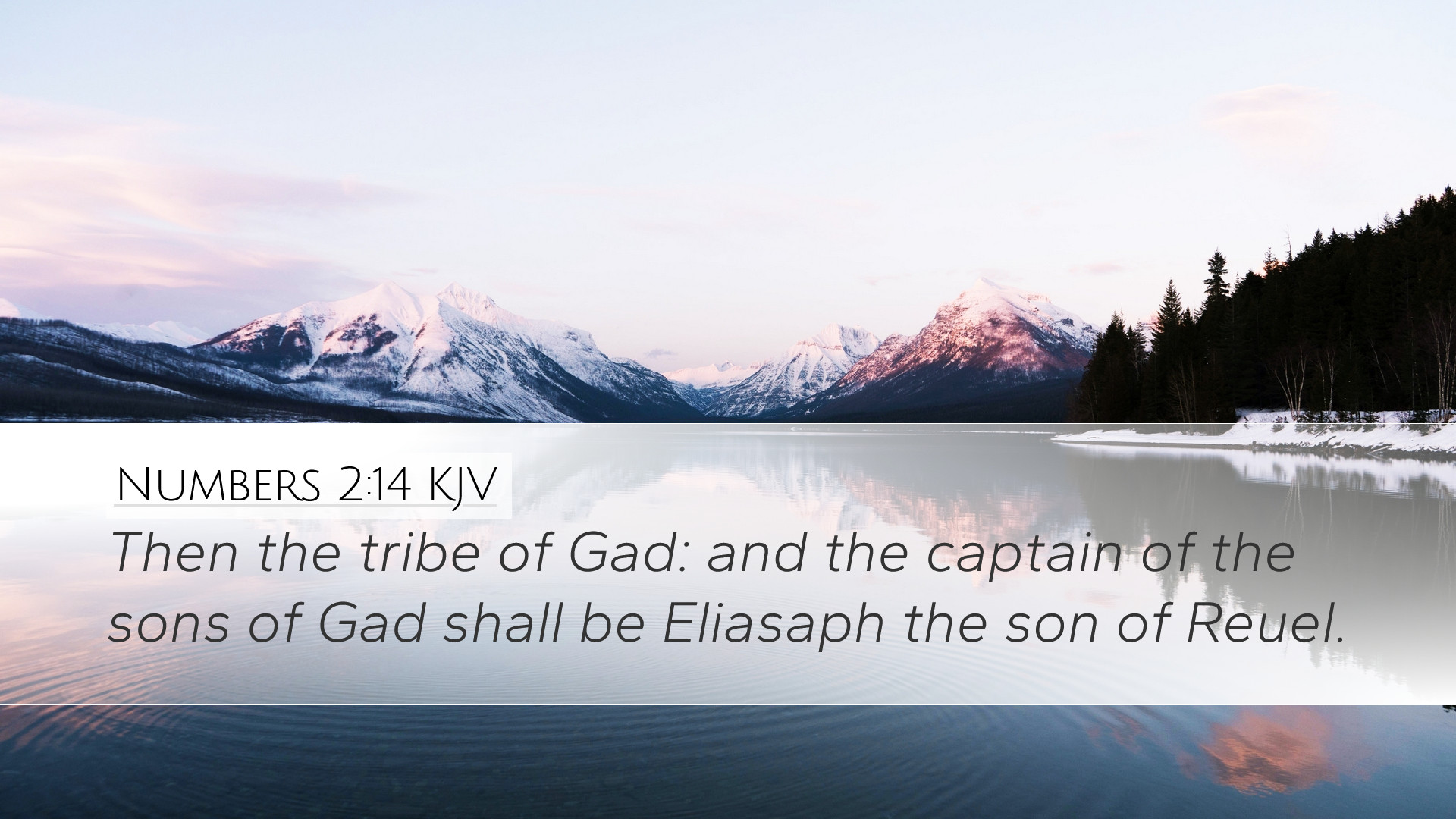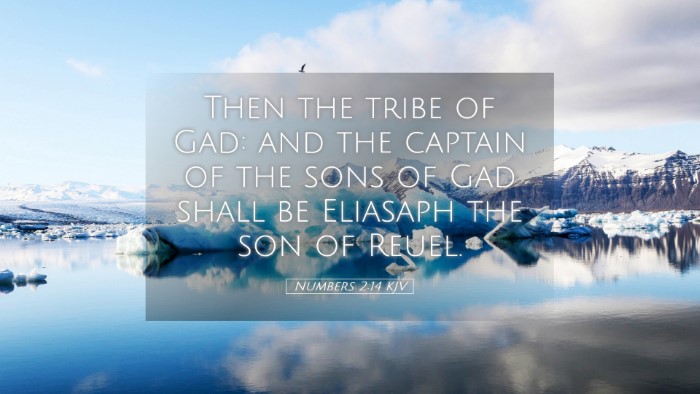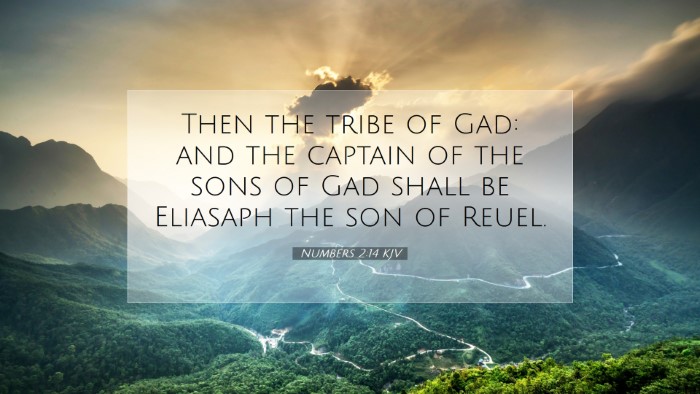Bible Commentary on Numbers 2:14
Numbers 2:14 states, "Then the tribe of Gad, the leader of the sons of Gad, was Eliasaph the son of Reuel."
This verse is part of the broader narrative in the book of Numbers, which details the organization and arrangement of the Israelites as they camped in the wilderness and prepared for their journey to the Promised Land. The verse specifically highlights the tribe of Gad and its leader, providing insights into the leadership structure and the significance of tribal identity within the Israelite community.
Contextual Significance
To fully appreciate Numbers 2:14, we must consider its place within the larger framework of the Israelites' exodus from Egypt:
- Tribal Organization: The structure presented in this chapter illustrates God’s orderliness and the importance of community.
- Leadership Roles: The mention of Eliasaph underscores the importance of appointed leaders and their responsibilities in guiding and protecting their tribes.
- Historical Identity: Each tribe is given prominence, reflecting its unique characteristics and contributions.
Commentary Insights
Various commentators provide meaningful insights into Numbers 2:14:
Matthew Henry's Commentary
Matthew Henry emphasizes that the genealogy and organization seen in this verse highlight God’s sovereignty in leading His people. He notes:
- The appointment of Eliasaph as a leader signifies divine selection. Leadership among God’s people should always be viewed as both a privilege and responsibility.
- The tribe of Gad was positioned on the southern side of the Tabernacle, which served a symbolic purpose of orderliness and proximity to the center of worship.
Albert Barnes' Notes
Albert Barnes provides an analytical approach stating that:
- The name “Gad” means “a troop” and reflects the tribe’s historical context as warriors. Their designation illustrates God’s provision for defense among the Israelites.
- Eliasaph, as a representative leader, is essential for both governance and military strategy, emphasizing the dual role leaders play within the Israelite community.
Adam Clarke's Commentary
Adam Clarke offers a deeper insight into the religious and moral lessons derived from the organization within the camp:
- Clarke highlights the importance of being organized in spiritual endeavors. Each tribe’s arrangement around the Tabernacle signifies how worship and community life focus around God’s presence.
- The reference to Eliasaph also points to the necessary qualities for leaders—integrity, guidance, and faithfulness—which are crucial for sustaining God’s people through challenges.
Theological Reflections
Several themes emerge from the commentary on Numbers 2:14 that are critical for theological reflection:
- Divine Order: The structure of tribes around the Tabernacle shows God's desire for order in the midst of chaos. This idea applies to contemporary spiritual communities where God’s order should govern relationships.
- Leadership and Accountability: The role of leaders like Eliasaph calls for contemporary application; leaders today must seek God’s guidance and serve with integrity and grace.
- Covenant Community: The identity of each tribe reinforces the idea that believers are part of a larger covenant community, underscoring mutual support and shared purpose.
Practical Applications
Reflecting on Numbers 2:14 brings several practical applications for modern believers:
- Emphasizing the importance of community and unity in working towards common goals.
- Encouraging leaders to seek a divine mandate in their leadership, remembering the weight of responsibility they carry.
- Recognizing the significance of spiritual heritage and identity within the body of Christ, as believers are reminded of their place in God’s redemptive plan.
Conclusion
Numbers 2:14 serves as a vital reminder for believers about the nature of leadership, community, and divine order. By applying the lessons learned from the tribe of Gad and their leader, Eliasaph, one can find encouragement and direction in fulfilling their roles within the church and broader community.


